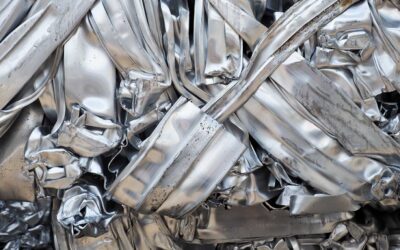Aluminium: Engine of the Circular Transition towards a Sustainable Future
The Spanish Aluminum Association (AEA) has unveiled a crucial report during its latest General Assembly, highlighting the decisive role of aluminum in the transition to a circular economy in Spain. Directed by Josep María Tost i Borras, an expert in Circular Economy and public policies, the report positions aluminum as an essential element for the sustainability of vital sectors for the nation, such as automotive, food, aeronautics, and construction. This is reported by Mejor de Aluminio on its blog.
Opportunities and Challenges of Aluminum in the Circular Economy
The document emphasizes the opportunities offered by aluminum to move from a linear to a circular economy. Circular Economy, as an alternative model, seeks to maximize resource utilization through reuse, repair, recycling, and regeneration. This approach is crucial to address the growing problem of waste since, according to 2019 data, each European generates an average of half a ton of waste per year, totaling 2.5 billion tons of annual waste in the European Union.
Material recovery, especially of aluminum, not only saves raw materials but also strengthens autonomy and independence, reduces imports, and creates jobs. Additionally, the report highlights the potential savings of up to 630 billion euros in materials and the creation of up to 100,000 jobs in Europe by 2030.
Aluminum in Construction: A Transformative Element
The construction sector, a key focus of the European Union since 2015, emerges as a fundamental ground for the integration of aluminum. The report proposes concrete measures such as mandatory certification of buildings for sustainability, effective mechanisms for green public procurement, and the update of technical and design guides.
At the national level, the report highlights data from the Catalan Waste Agency, indicating that for every 10,000 tons of recovered materials, up to 250 jobs can be created, with savings of up to two million euros in raw materials.
Regulation and Recognition: The Role of the Regulatory Framework and the Regulation on Critical Raw Materials
Gonzalo de Olabarria, Secretary-General of the AEA, emphasizes the need for an appropriate regulatory framework to advance towards a real Circular Economy. The report forecasts that, with this framework, half of the European demand for aluminum could be supplied with recycled aluminum by mid-century.
The recent approval of the Regulation on Critical Raw Materials by European institutions, including aluminum as a strategic raw material, will strengthen national industries and reduce dependence on third countries.
Aluminum as a Pioneer in the Circular Economy
In summary, aluminum emerges as a pioneer in the Circular Economy, offering a sustainable solution, reducing CO2 emissions, and strengthening key sectors of the economy. The transition to a circular economy in Spain is more achievable than ever, and aluminum will play a fundamental role in this transformation. The sustainable future of the nation is intrinsically linked to the responsible and strategic use of aluminum in all aspects of daily life.
If you have any questions or want to know more about this type of content, you can contact us.



